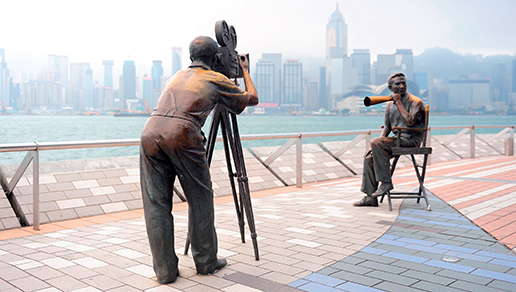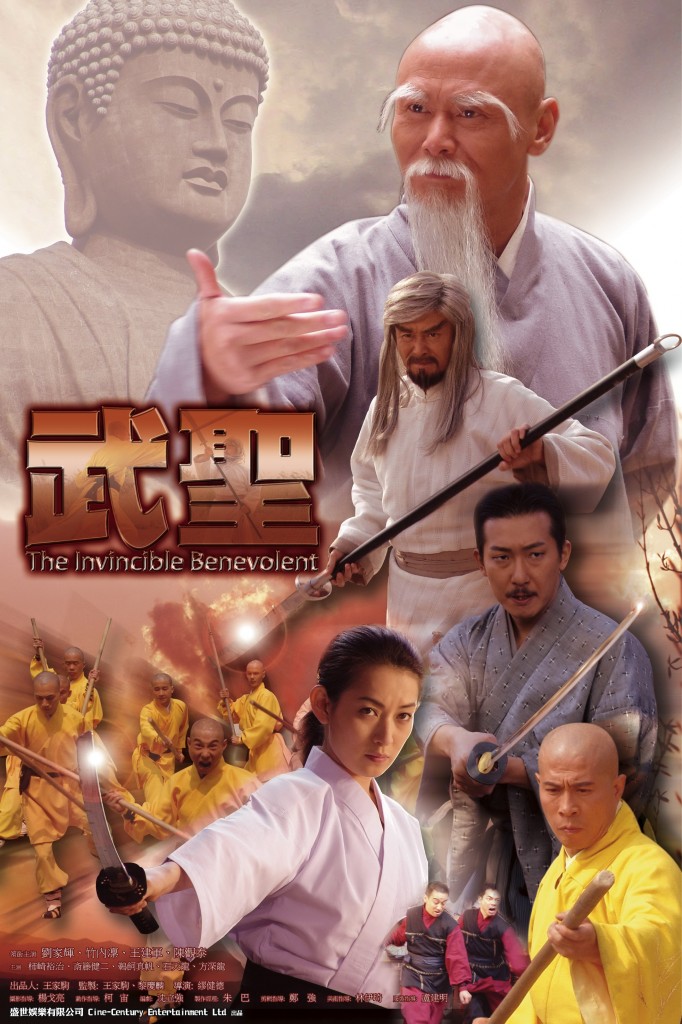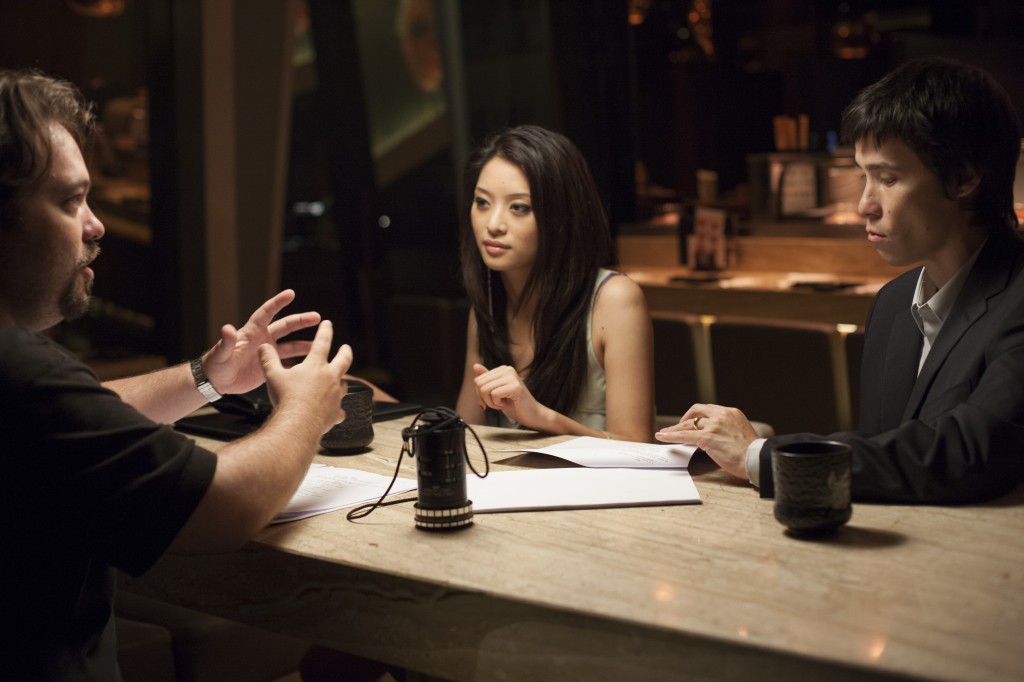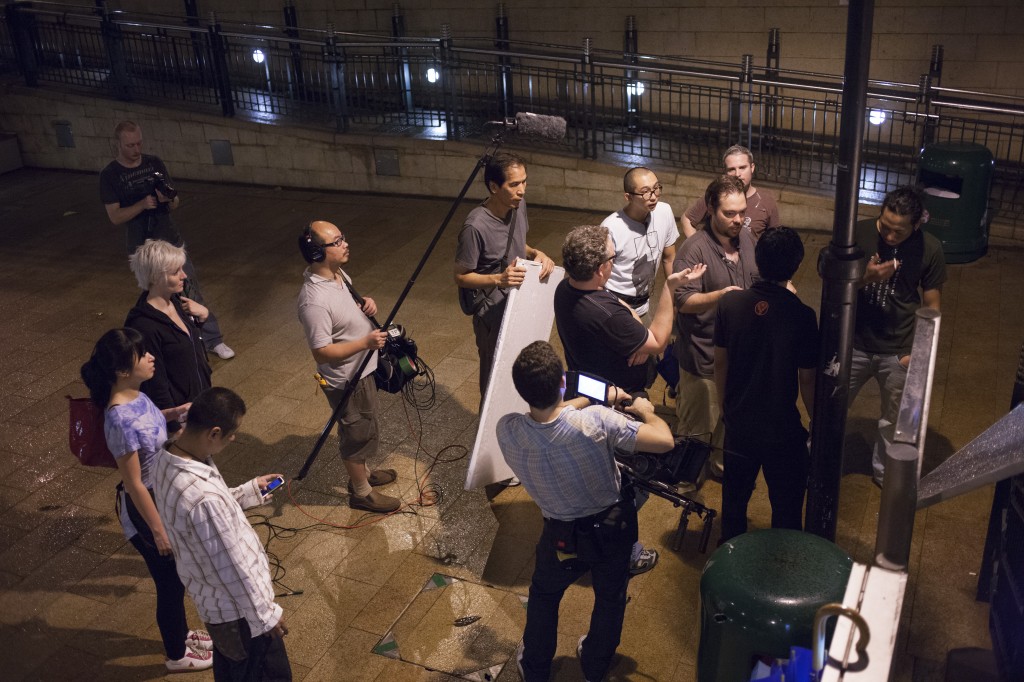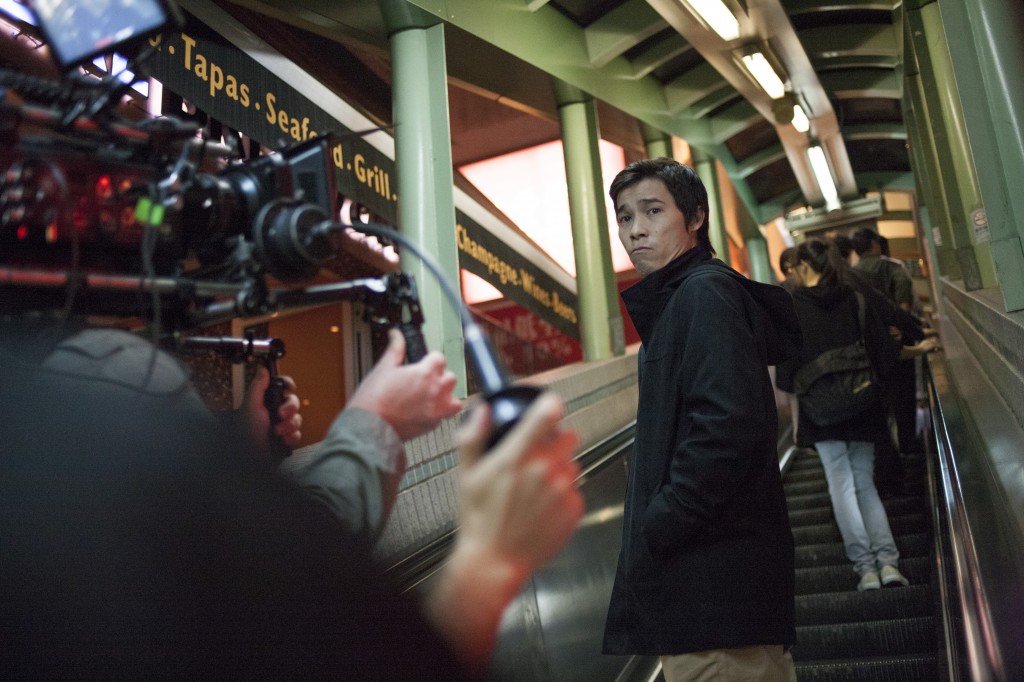Hong Kong Film Industry Snapshot
PART 1: HUGE POTENTIAL FOR HK INDUSTRY IF OBSTACLES OVERCOME
By Ricky K.K. Wong, Vice Chairman MPDA and CEO Cine-Century Entertainment
Cine‐Century Entertainment (CCE) has been active in Hong Kong since 1989 and is best known for its innumerable fast‐action kung fu and police/triad movies starring and helping to launch the careers of many distinguished actors including Kill Bill‘s Gordon Liu and Donnie Yen from The New Big Boss. The CCE also provided production services to Broadcast Thai TV (TV3) for location filming of the TV drama Qipao in Hong Kong in 2012, and to Tianjing Television for location filming of the documentary China Right Here 2013 – Shangri-La, in Ben Tre, Vietnam in 2013. Ricky is also a vice chairman of Hong Kong’s Movie Producers & Distributors Association, as well as examiner on the Fund Vetting Committee of the Hong Kong Film Development Council.
If there is one character trait one needs to work and survive in Hong Kong’s film industry, it is the ability to adapt. For as long as I’ve experienced this business, there has always been change – not always immediately beneficial for filmmakers – but always exciting and stimulating. I’ve no doubt that it is this dynamism that has always attracted me to this industry.
The release of the “Economic Contribution of the Film and Television Industries in Hong Kong,” prepared by Oxford Economics revealed figures and trends that may not have surprised many, but yet illustrated very clearly the fast evolving environment for film and television.
On the face of it, the industry is substantial – contributing USD2 billion (HKD15.58 billion) to the local economy, supporting over 30,200 jobs and generating total tax revenues of USD157 million (HKD1.215 billion) in 2014. And yes, the Government is supporting the industry in various capacities with an eye to building the sector as an important cornerstone of the digital economy.
The potential for growth is certainly there. HK audiences are a movie-loving crowd, and the quality digital cinema experience is one that is being embraced. The building of additional cinema screens will generate further income into the business, and allow for a wide range of films to be seen across HK.
The industry’s close relationship with mainland China is perhaps the best opportunity for growth. Our aim should be to work closely with our partners on co-productions, sharing knowledge, skills and creative ideas to maximize the mainland market and hopefully at some stage gain a firmer foothold in other international markets.
The transition to a digital industry has been fraught with obstacles that today slow down our ability to make revenue from various digital channels. The legitimate online business would certainly benefit if we had greater recourse to prevent online piracy. The first step for Hong Kong is to introduce a modern Copyright Law that reflects the realities of a digital business. This is long overdue. Secondly, we are currently facing a huge threat from devices and apps which simply stream illegal content at the tap of a finger. It’s impossible to compete with free, and when the illegal content is so commonly available, it’s doubly hard to combat. Which brings us to the third step – which is to work with Government and all partners to raise awareness and educate our audiences about their important choice to access our films and TV shows the way they were meant to be viewed. Address these three issues and we’re in with a chance to see our industry in HK achieve its full potential.
PART 2: WHY MAKE A FILM IN HK?
An interview with independent U.S. filmmaker Dax Phelan, whose film Jasmine, premiered at the Hong Kong International Film Festival on March 25
What was the attraction for shooting in Hong Kong and how did you want Hong Kong to be portrayed in your film?
I was attracted to shooting in Hong Kong for several reasons. The first and foremost reason was the story. My protagonist, Leonard To (Jason Tobin), is Eurasian – half-Chinese, half-British – and, in a sense, caught between two worlds. He is isolated, despite being surrounded by people. And he is suffering from an undiagnosed condition that has caused him to slip through the cracks and exist on the fringes of society. So, for narrative purposes, the film really couldn’t have been set anywhere but Hong Kong. The fact that I happen to love the city, which has become a second home to me over the past decade, was certainly a bonus (one of many), but never a deciding factor. It was always about the story.
I always wanted to portray Hong Kong as a character unto itself and use it to reflect the inner landscape of my protagonist. If you look at other films in which I’ve been involved, you’ll notice that these are recurring traits. She’s Lost Control, which I executive produced in New York last year, is a particularly good example.
However, at the same time, I didn’t want my depiction of Hong Kong to be the same one that audiences are accustomed to seeing. In other words, I didn’t want to shoot the city the way many foreign directors tend to shoot it, with gratuitous picture-postcard establishing shots of the skyline, vintage junk boats, and so forth.
Instead, I wanted to adhere as strictly as possible to my protagonist’s point-of-view. So, if he doesn’t see it in the course of his daily life, the audience doesn’t see it. Also, whenever possible, I tried to show the city’s mixed Chinese and British background, which I find fascinating and don’t feel is represented enough in films. I think a lot of audiences know that Hong Kong was a British colony, but I don’t think they realize how many people speak English, how many Westerners you see walking the streets, how many of the streets themselves have English names, and so on.
How did you and your producers put together the creative team, which included cast/crew from both the U.S. and Hong Kong?
When Jason and I first decided to make the film together, we approached veteran producer Stratton Leopold, with whom I’d worked in the past, for guidance. Stratton made his name on big Hollywood movies, but he has a soft spot for independent film and, to our pleasant surprise, he came aboard to produce. Together, we began searching for a HK-based producer who had experience making low-budget films and, after a few false starts, we found Jen Thym, who had recently written, produced, and directed the web series, Lumina. Fortunately for us, Jen had assembled a first-rate local crew for Lumina and we were able to use many of those same people for Jasmine. I brought aboard Guy Livneh, a world-class Director of Photography with whom I’d wanted to work with ever since we’d attended graduate school at the American Film Institute together. Guy brought aboard 1st AC, Matt Chavez, who owned one of the two RED cameras we used on the film. A few weeks later, we were all in Hong Kong. It all came together very quickly.
In terms of casting, having Jason on board first was key. He’d delivered a breakout performance in Justin Lin’s Better Luck Tomorrow (2002), and is highly regarded among his fellow actors. So, there was really no shortage of people who wanted to work with him, even though our budget was low (under USD$1million). For the role of Grace, a woman from Leonard’s past, Jason and I had only ever one actress in mind: Hong Kong Film Award-winner Eugenia Yuan Memoirs of a Geisha, Revenge of the Green Dragons, Crouching Tiger, Hidden Dragon: The Green Legend. Eugenia had worked with Jason before and agreed to come aboard, which was the first of several casting coups. Byron Mann (The Man With The Iron Fists), with whom I’d worked before, came aboard not long after, followed by Golden Horse Award-nominee Glen Chin (Hollywood Hong Kong). Because we were having trouble filling the role of Anna Z, we decided to hold an open casting call. Sarah Lian, an actress and FHM cover girl, strode in, read with Jason, and blew us all away. I’ve never seen anyone rock an audition quite like that before. She just walked off with the role as if it was already hers and the audition was a mere formality.
How did you find the skill-level of your HK crew?
The level of skill demonstrated by my Hong Kong crew exceeded even my highest expectations in every respect. Everyone was very professional; 99% of them spoke English; they knew their way around a film set; they knew not just how to do their jobs but related jobs as well; they knew how to tackle the specific logistical challenges that come with shooting a film in Hong Kong; and they knew how to adapt on the fly if an unforeseen complication – such as weather, perhaps – came into play. I couldn’t have asked for anything more. Truly.
However, what most impressed me wasn’t just the level of skill, but rather the level of hard work and dedication I saw every day. As is sometimes the case in low-budget filmmaking, Jasmine had one of those sets where one could make whatever they wanted to make of it. Just because you were hired for one job didn’t mean you couldn’t rise through the ranks and attain another job if you were willing to learn, to apply that learning, and to work hard. For example, we had one gentleman who began the shoot as a production assistant and ended the shoot as the Key Grip. It was an inspiring thing to witness for all involved, I think. All that said, Jasmine was an extremely difficult and often miserable shoot compared to most, but none of that shows in the finished film and I believe the crew’s skill-level, hard work, and dedication is, to a great extent, responsible for that. I can’t thank them enough.
Did you make the film primarily for an audience in HK, in the U.S., both or indeed for an international audience?
I believe that, if you tell a personal story honestly and with great specificity, it will achieve a universal appeal. Therefore, even though Jasmine is a highly personal film in many ways, I always hoped it would appeal to all audiences or, at the very least, all mature audiences, whether they’re from Hong Kong, China, the States, Europe, or elsewhere.
In our early discussions about Jasmine, Jason, Stratton, and I often talked about the state of the industry as it related (and still relates) to the U.S. and China/Hong Kong. Stratton had recently finished shooting “Mission Impossible III” in Shanghai, and there was this real sense that China wanted to do more business with Hollywood and Hollywood wanted to do more business with China – and, yet, the cultural gap was proving difficult to bridge. So, part of the reason why we wanted to set up our company, Shanghai Street Films, and make Jasmine, was because we wanted to cross over and bridge that gap, even if it’s on a relatively small scale – a test run, if you will. So far, the World Premiere screening at the Hong Kong International Film Festival sold out in one week. Due to high demand, the festival added an encore screening, which sold out in 24 hours. Now, I’ve learned that the upcoming U.S. Premiere screening at the Dallas International Film Festival has sold out also, with two weeks still to go. Of course, it’s still too early to tell if we’ve truly crossed over or not, but the results thus far are very encouraging and it will be interesting to see what the coming year brings.
Would you want to make another film in HK and if so, why?
In a heartbeat. I love the energy and the speed with which things happen. It’s very stimulating and addictive. Actually, I have a few Hong Kong-set projects in active development. It’s going to be a very busy year. More on all that later
What does the future hold, in your view, for the HK film industry?
To me, the wonderful thing about Hong Kong is that you can make a high-quality film for a price and, provided it stays that way, I think the Hong Kong film industry is on the verge of a renaissance – no, scratch that, an explosion – and it all hinges on how quickly and effectively we can continue to build the bridges between East and West. I think films like Jasmine are paving the way for what’s to come. It’s a very exciting time, and I can’t wait to see what the future holds for both the Hong Kong, Chinese, and U.S. film industries and, of course, our company.
Read The Hollywood Reporter’s review of film Jasmine here.

